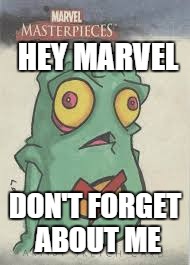All the buzz in Hollywood seems to be focused around two words, "High" and "Concept." By this, I mean the big studios are high on "high concept" movies. Gone are the days of the mid-budget crime pics, full of intricate details and snappy dialogue, and no longer do the romantic comedy-dramas stock the cinemactic multiplexes during the not-so-busy months. Producers are unwilling to take a chance on a film like the 1944 classic
Laura, a simplistic idea that sparkles thanks to an excellent cast, great writing, and a top-notch director.
 |
| Wouldn't you fall in love with this picture, too? |
Why won't they take a chance on such a movie? Easy, it isn't a "high concept" idea. There's not enough action or high-octane, testosterone fueled stunts to tease the audience with. In short, the story is too cerebral. It relies on carefully developed characters and tight plotting to keep the audience guessing. There's no room to turn it into a cheesy rom-com or a Michael Bay-esque romp filled with explosions and gratuitous shots of a supermodel's "goodies." Thank God for that.
Okay, I think it's time we moved on to actually discussing what "high concept" actually means. Other than a term thrown around by wannabe film experts to sound smart, it's "officially" defined as something that can be described in three sentences or less, preferably just one. The focus is largely on plot and action to give it mass appeal.
Although he didn't know it at the time he wrote
Screenplay: The Foundations of Screenwriting, Syd Field may have given us the best description of what high concept is--"To create an idea, then...'pour' your characters into the action" (Field, 87-88). Idea, action, and then character in that order. No wonder Marvel and super-robots make a killing at the box office.

If any of you see anything problematic or perhaps enlightening, go ahead and let me know. Also, a more technical explanation can be found at the Writer's Store.com article, "High Concept Defined Once and For All."


No comments:
Post a Comment